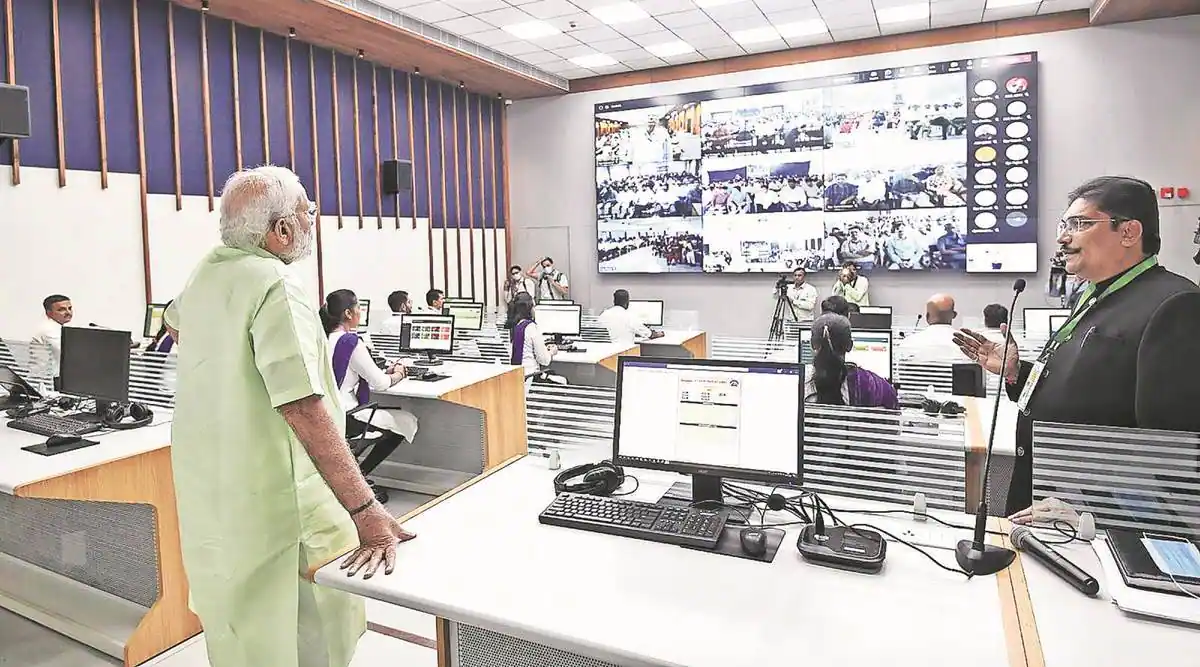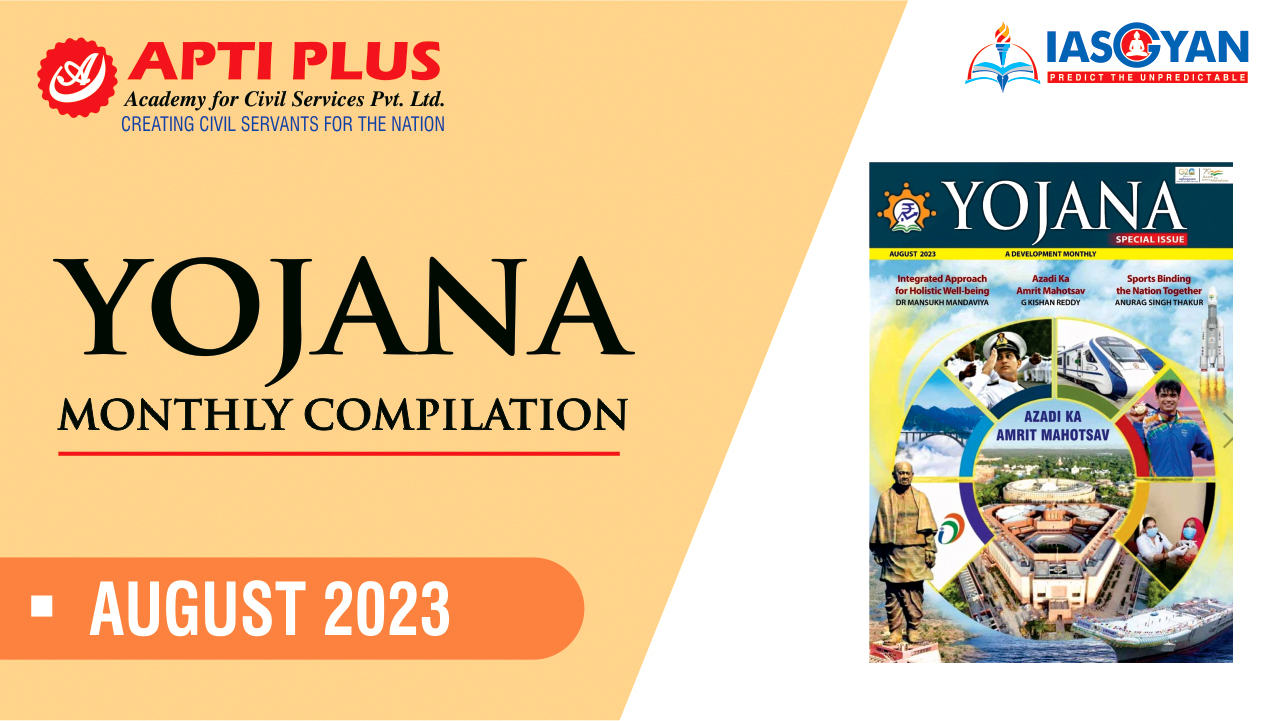Description

Copyright infringement not intended
Picture Courtesy: Indian Express
Context: A new initiative by the Ministry of Education (MoE) aims to create a unified data platform for all its schemes. The Vidya Samiksha Kendras (VSKs) will be established by the States under the National Digital Education Architecture (NDEAR) and will store and analyse data from various sources. The VSKs will help the MoE monitor the progress and impact of its policies and programmes.
Details
- The Indian government recognized the importance of data-driven education policies and initiatives to improve the quality of education and address challenges in the system. The NDEAR initiative was launched to centralize and manage data from various educational schemes and programs run by the Ministry of Education (MoE).
- The National Digital Education Architecture (NDEAR) initiative, which includes the establishment of Vidya Samiksha Kendras (VSKs) as data repositories, is a significant and ambitious effort to transform education through data-driven decision-making.
Key features of the Vidya Samiksha Kendras (VSKs) initiative under the National Digital Education Architecture (NDEAR)
Data Integration
- VSKs serve as centralized repositories for education-related data.
- Data is collected from various sources, including student attendance, academic performance, teacher training, and other educational indicators.
- The consolidation of data from multiple schemes and programs enables a comprehensive view of the education system.
Technology
- VSKs leverage open-source software and hardware solutions.
- Open-source technologies are cost-effective, flexible, and promote transparency and collaboration.
- These technologies facilitate data storage, management, and analysis.
API Integration
- The initiative aims to transition from manual data entry to automatic data integration using Application Programming Interfaces (APIs).
- API integration enables real-time data sharing and communication between different levels of education authorities, such as central, state, and district levels. This automation streamlines data collection and enhances data accuracy and timeliness.
Expert Advisory
- The EkStep Foundation plays a crucial advisory role in the implementation of the VSK project.
- Experts from EkStep provide guidance, best practices, and domain knowledge to ensure the success of the initiative. Their involvement enhances the project's credibility and effectiveness.
Funding
- The central government allocates financial resources to states for the establishment and operation of VSKs.
- Funding covers various aspects, including the procurement of hardware and software, hiring human resources, and capacity building.
- Financial support ensures the sustainability and scalability of the initiative.
Analytics and Correlation
- The primary objective of VSKs is to employ data analytics to correlate information from different datasets.
- Correlation of data allows education authorities to identify patterns, trends, and relationships between various educational factors.
- Informed decision-making is facilitated by insights gained through data analysis.
Significance of the initiative
Improved Decision-Making
- Data-driven insights empower education authorities to make informed decisions. By analyzing data from various sources, policymakers can understand the effectiveness of different education programs and policies.
- Informed decision-making helps in setting priorities, optimizing resource allocation, and implementing targeted reforms to improve the quality of education.
Targeted Interventions
- Data correlation allows for the identification of specific areas that require intervention. For example, by correlating attendance data with dropout rates, authorities can identify schools or regions with high dropout rates and implement strategies to address this issue.
- Identifying areas for improvement enables education authorities to allocate resources where they are most needed, thus maximizing the impact of interventions.
Efficient Resource Allocation
- The availability of comprehensive data enables education authorities to plan the establishment of new schools, skilling programs, and higher education institutions strategically.
- Resource allocation can be tailored to match the demand and demographic distribution of students, ensuring that educational institutions are effectively serving their communities.
Transparency
- Open-source data standards and the centralization of data promote transparency in the education sector. This transparency is crucial for building trust and accountability.
- Stakeholders, including parents, educators, and the public, can access and scrutinize the data, leading to increased accountability in the management and delivery of education services.
Alignment with National Education Policy (NEP) 2020
- The initiative's use of open-source data standards aligns with the objectives of NEP 2020, which emphasizes the importance of transparency and accountability in the education system.
- NEP 2020 aims to transform the education sector by promoting innovation, flexibility, and data-driven decision-making, making the VSK initiative a key enabler of these goals.
.jpg)
Challenges associated with the implementation of the Vidya Samiksha Kendras (VSKs) initiative
Data Quality
- Data Validation: Implement data validation checks at the point of entry to ensure that only accurate and complete data is accepted.
- Regular Data Audits: Conduct periodic audits to identify and rectify any data discrepancies or inaccuracies.
- Data Governance: Establish clear data governance policies and assign responsibilities for data quality maintenance.
- User Training: Provide training to users on the importance of data accuracy and how to input data correctly.
Privacy and Security
- Data Encryption: Encrypt sensitive data both in transit and at rest to prevent unauthorized access.
- User Authentication: Implement strong authentication methods to verify the identity of users accessing the system.
- Access Controls: Define and enforce access controls to limit who can access specific data and functionalities.
- Regular Security Audits: Conduct regular security assessments and penetration testing to identify and mitigate vulnerabilities.
Technical Infrastructure
- Scalable Architecture: Design the infrastructure to be scalable to handle increasing data and user loads.
- Cloud Solutions: Consider using cloud-based services for flexibility and scalability without the need for large upfront infrastructure investments.
- Regular Maintenance: Schedule routine maintenance and updates to ensure the infrastructure remains reliable and up to date.
- Disaster Recovery: Develop a robust disaster recovery plan to minimize downtime in case of system failures.
Interoperability
- Standard Protocols: Use standardized communication protocols and data formats to enable interoperability between different systems and platforms.
- APIs and Integration: Develop well-documented APIs and integration points to facilitate data exchange with external systems.
- Collaborative Partnerships: Collaborate with other educational institutions and edtech providers to establish common interoperability standards.
- Testing and Validation: Thoroughly test and validate interoperability features to ensure seamless communication.
Way Forward
Completion of API Integration
- Work diligently to complete the integration of APIs for seamless data exchange with various stakeholders, including schools, teachers, and other education-related systems.
- Test and validate the integration thoroughly to ensure data accuracy and reliability.
Data Quality Assurance
- Implement continuous data quality monitoring mechanisms.
- Establish a feedback loop where users can report data discrepancies or issues for quick resolution.
- Conduct regular data quality audits and corrections.
Privacy and Security Measures
- Invest in additional security measures, including intrusion detection systems and data loss prevention tools.
- Train staff and users on data security best practices to reduce the risk of data breaches.
- Stay updated with evolving data privacy regulations and compliance requirements.
Scalability
- Plan for the expansion of the VSK initiative to cover more states and regions, taking into account the increased data volume and user base.
- Ensure that the technical infrastructure can handle this growth through scalable architecture and cloud solutions.
Policy Alignment
- Collaborate with policymakers to ensure that education policies align with the insights and recommendations generated from data analysis.
- Advocate for data-informed decision-making in education policy formulation and implementation.
Skill Development
- Provide training programs and resources to educators and officials to enhance their data literacy and analytical skills.
- Foster a culture of data-driven decision-making by showcasing success stories and the value of data in improving education outcomes.
User Engagement
- Engage with users, including teachers and administrators, to gather feedback and insights on how data can better support their needs and objectives.
- Encourage user participation in the data collection and reporting process.
Monitoring and Evaluation
- Establish key performance indicators (KPIs) to measure the impact of data-driven initiatives on educational outcomes.
- Regularly assess the effectiveness of the VSK initiative and make adjustments as needed.
Communication and Transparency
- Maintain transparent communication channels with all stakeholders, including parents and students, to build trust in the data-driven approach.
- Provide accessible and understandable reports and dashboards to share insights and progress.
Continuous Improvement
- Continuously review and refine the processes, infrastructure, and strategies based on lessons learned and evolving needs.
- Stay informed about emerging technologies and best practices in the field of data-driven education.

Conclusion
- The VSK initiative under NDEAR has the potential to revolutionize education in India by leveraging data for informed decision-making. However, addressing challenges and ensuring data quality and security are crucial for its success. The way forward involves technical advancements, policy alignment, and capacity-building to harness the full potential of this initiative for improving education outcomes in India.
|
PRACTICE QUESTION
Q. What are the key challenges currently facing the Indian education system, and what specific steps have been taken by the government to address these challenges? What strategies should be adopted to shape the future of education in India and ensure equitable access, quality, and relevance in the coming years?
|
https://www.thehindu.com/education/bring-assorted-data-under-one-umbrella-through-vidya-samiksha-kendras-education-ministry-tells-states/article67288851.ece/amp/










